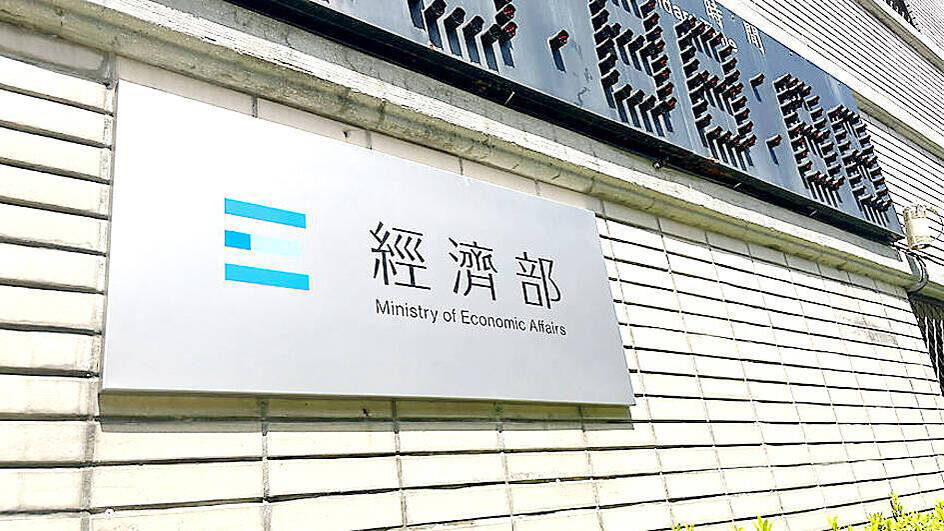Taiwan has not recorded any exports of machine tools to Russia since it updated a list of restricted items in March in line with international export sanctions put in place after Russia’s invasion of Ukraine in February 2022, the Ministry of Economic Affairs (MOEA) said on Friday.
The list of goods banned for export to Russia was updated on March 8, which added 77 categories of machine tool-related items under the Harmonized System, the internationally standardized code system of global trade, the ministry said in a statement.
With local businesses’ cooperation, Taiwan has not recorded any exports of the sanctioned goods in the category of machine tools, the ministry said.

Photo: Liao Chia-ning, Taipei Times
The ban on machine tool exports to Russia and Belarus has been introduced, because the equipment can be used by the military to manufacture artillery, the ministry said.
The penalty for first-time violations of exporting to Russia and Belarus has been increased by over 15 times to NT$1 million (US$31,281), the ministry said.
The ministry’s statement was in response to a more than 60-page report by UK-based think tank Royal United Services Institute for Defence and open-source intelligence organization Security and the Open Source Centre about Russia’s artillery supply chain.
Published on Oct. 15 and titled Ore to Ordnance: Disrupting Russia’s Artillery Supply Chains, the words “Taiwan” or “Taiwanese” were mentioned 10 times.
One section of the report highlighted China’s role as a re-export hub of sanctioned machine tools manufactured by a coalition of countries that have sanctioned Russia.
The report said that at least 2,113 companies supplied machine tools produced in Western countries to Russia during last year and the first three months of this year.
Among these companies, 26.16 percent were Turkish and 17.5 percent were Chinese.
“The rest of the suppliers originate from Germany (8.50 percent), South Korea (6.75 percent), Taiwan (6.08 percent), Italy (5.92 percent), the UAE (4.63 percent), Lithuania (2.47 percent) and Serbia (2.21 percent),” the report said.
The report also said that Chinese companies accounted for 41 percent of Japanese machine tool products exported to Russia, 26 percent of Taiwanese products and 19 percent of South Korean products.
However, only five of the 36 top Chinese companies supplying Russia with machine tools have been sanctioned by the democratic camp led by the US, the report said.
Chinese subsidiaries of 10 companies from the coalition of democracies are listed in the report because their sales to Russia exceeded US$800,000 during last year and the first three months of this year.
Three of the 10 companies in China were set up by Taiwanese firms, two each by businesses based in South Korea, Germany and the US, and one in Japan, the report said.
Asked for comment, the ministry said it would not comment on individual companies, stating only that 19 meetings have been held with Taiwanese businesses this year to update them on the latest international rules as part of efforts to prevent the sale of sanctioned items to Russia.
The government would adjust sanctions in response to global developments, while working with like-minded countries to quash illegal trade, the ministry said.

Left-Handed Girl (左撇子女孩), a film by Taiwanese director Tsou Shih-ching (鄒時擎) and cowritten by Oscar-winning director Sean Baker, won the Gan Foundation Award for Distribution at the Cannes Critics’ Week on Wednesday. The award, which includes a 20,000 euro (US$22,656) prize, is intended to support the French release of a first or second feature film by a new director. According to Critics’ Week, the prize would go to the film’s French distributor, Le Pacte. "A melodrama full of twists and turns, Left-Handed Girl retraces the daily life of a single mother and her two daughters in Taipei, combining the irresistible charm of

A Philippine official has denied allegations of mistreatment of crew members during Philippine authorities’ boarding of a Taiwanese fishing vessel on Monday. Philippine Bureau of Fisheries and Aquatic Resources (BFAR) spokesman Nazario Briguera on Friday said that BFAR law enforcement officers “observed the proper boarding protocols” when they boarded the Taiwanese vessel Sheng Yu Feng (昇漁豐號) and towed it to Basco Port in the Philippines. Briguera’s comments came a day after the Taiwanese captain of the Sheng Yu Feng, Chen Tsung-tun (陳宗頓), held a news conference in Pingtung County and accused the Philippine authorities of mistreatment during the boarding of

88.2 PERCENT INCREASE: The variants driving the current outbreak are not causing more severe symptoms, but are ‘more contagious’ than previous variants, an expert said Number of COVID-19 cases in the nation is surging, with the Centers for Disease Control (CDC) describing the ongoing wave of infections as “rapid and intense,” and projecting that the outbreak would continue through the end of July. A total of 19,097 outpatient and emergency visits related to COVID-19 were reported from May 11 to Saturday last week, an 88.2 percent increase from the previous week’s 10,149 visits, CDC data showed. The nearly 90 percent surge in case numbers also marks the sixth consecutive weekly increase, although the total remains below the 23,778 recorded during the same period last year,

The Chinese Communist Party (CCP) is pushing for residents of Kinmen and Lienchiang counties to acquire Chinese ID cards in a bid to “blur national identities,” a source said. The efforts are part of China’s promotion of a “Kinmen-Xiamen twin-city living sphere, including a cross-strait integration pilot zone in China’s Fujian Province,” the source said. “The CCP is already treating residents of these outlying islands as Chinese citizens. It has also intensified its ‘united front’ efforts and infiltration of those islands,” the source said. “There is increasing evidence of espionage in Kinmen, particularly of Taiwanese military personnel being recruited by the